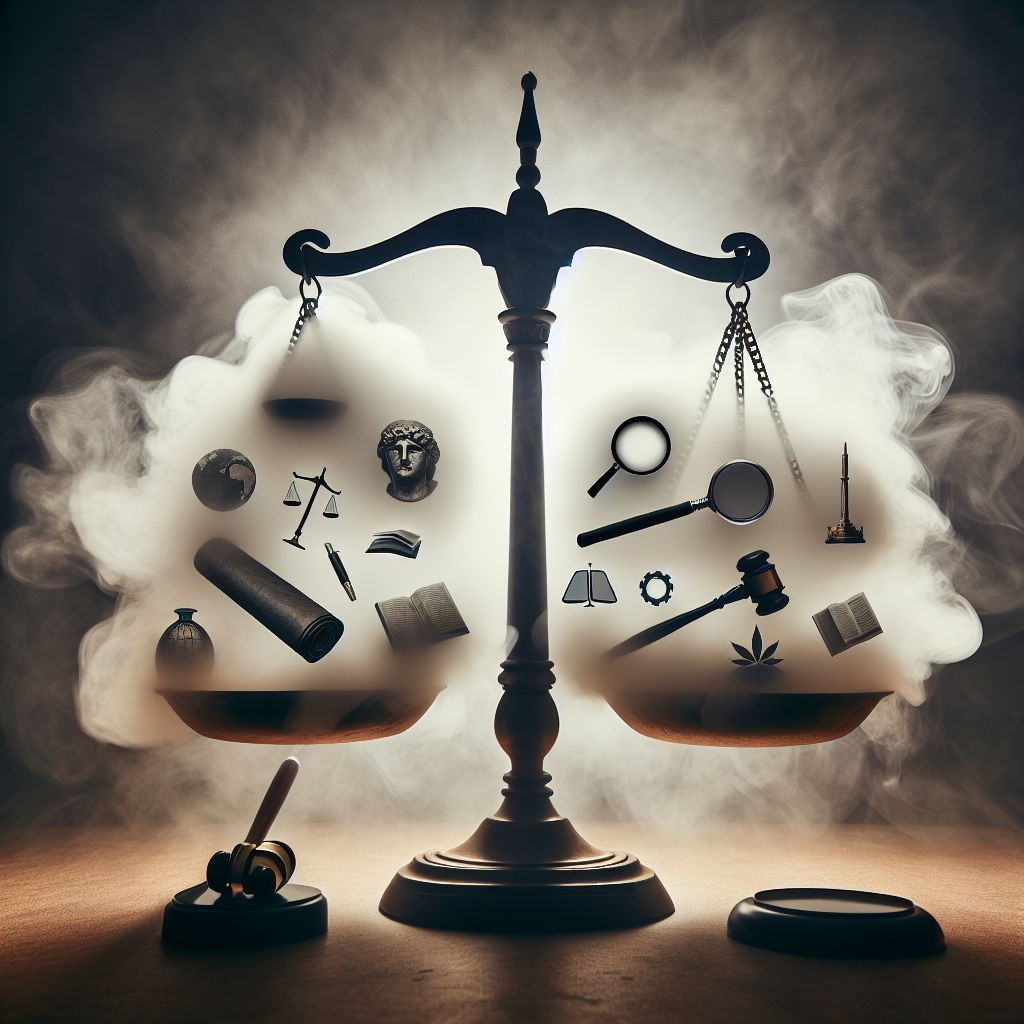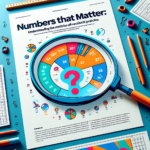
Introduction
When it comes to the legal system, the stakes are incredibly high. The pursuit of justice, while vital, is also exceedingly complicated by human flaws. One of the most pernicious of these flaws is cognitive bias—an invisible force that can distort facts, influence decisions, and ultimately steer justice down a misguided path. Blind Spots in Justice: The Consequences of Cognitive Bias in Legal Investigations reveals how these biases impact legal processes, from investigations to courtroom verdicts, and highlights the urgent need for greater awareness and corrective measures.
As we delve into this intricate issue, we will explore compelling case studies, examine the psychological underpinnings of these cognitive biases, and uncover actionable insights for legal professionals and society at large. By understanding our blind spots, we can navigate the murky waters of justice more effectively.
The Psychological Landscape of Cognitive Bias
What is Cognitive Bias?
Cognitive bias refers to the systematic patterns of deviation from norm or rationality in judgment. In simpler terms, it’s the way our brains can misinterpret information or draw conclusions based more on emotion than logic. Legal investigations, which hinge on objective facts, can be particularly susceptible to these biases.
Common Types of Cognitive Bias
Confirmation Bias: The tendency to search for, interpret, and remember information in a way that confirms one’s pre-existing beliefs or hypotheses.
Anchoring Bias: The reliance on the first piece of information encountered (the "anchor") when making decisions, often leading to skewed conclusions.
Hindsight Bias: The tendency to see events as having been predictable after they have already occurred, which can alter assessments of liability or accountability.
- Availability Heuristic: Overestimating the likelihood of events based on their availability in memory. A recent high-profile case, for instance, might influence perceptions of similar cases.
The Impact of Bias on Investigations
Case Study: The Central Park Five
In 1989, five Black and Latino teenagers were wrongfully convicted of attacking a jogger in Central Park. Cognitive biases such as confirmation bias played a crucial role during their interrogation and trial. Investigators focused on the inconsistencies in the teenagers’ statements while ignoring key evidence that suggested their innocence. This tragic miscarriage of justice exemplifies the profound blind spots in justice caused by cognitive biases, leading to devastating consequences for both the accused and their families.
Navigating the Investigative Waters: Consequences and Challenges
Blind Spots in Evidence Collection
Bias can shape not just the interpretation of evidence but also its collection. When investigators enter a case with preconceived notions, they may neglect evidence that contradicts their theories.
Chart: Common Biases Impacting Evidence Collection
| Cognitive Bias | Impact on Investigation |
|---|---|
| Confirmation Bias | Dismissal of exculpatory evidence |
| Anchoring Bias | Overvaluing initial suspect statements |
| Hindsight Bias | Misinterpretation of prior choices |
| Availability Heuristic | Misjudgments based on recent, high-profile cases |
The Role of Expert Witnesses
Expert witnesses are invaluable in legal proceedings, but they too can be subject to cognitive biases. For instance, an expert may demonstrate confirmation bias by selectively citing studies that support their claims while ignoring contradictory data.
Case Study: The Challenger Disaster
The 1986 Challenger Space Shuttle disaster serves as a sobering example of how cognitive biases manifest in high-stakes environments. Engineers from NASA and Morton Thiokol had concerns about the O-rings’ performance in low temperatures, but these concerns were overshadowed by management’s confidence in the mission’s safety. The tragic outcome provides a lesson about the real-world consequences of neglecting skepticism and prioritizing overconfidence.
Communicating Bias Awareness: Strategies for Legal Professionals
Training and Education
Legal professionals must actively engage in bias awareness training. By learning about cognitive biases and their effects, investigators and lawyers can mitigate their influence on decision-making.
Seeking Diverse Perspectives
Encouraging diverse teams during investigations can serve as a form of blind spot identification. Different backgrounds and viewpoints can challenge established narratives, ensuring a more comprehensive examination of the evidence.
Implementing Structured Decision-Making
Structured frameworks for decision-making can help reduce the sway of cognitive bias. For example, using checklists that compel investigators to consider alternative explanations before arriving at conclusions can minimize errors.
Technology and Bias
Utilizing technology can also help combat cognitive biases. For instance, data analytics tools can assist in assessing the relevance and quality of evidence, free from human limitations.
The Ripple Effect of Cognitive Bias in Courtrooms
Juror Perceptions
Cognitive biases don’t just affect legal practitioners; they extend to jurors as well. Jurors may inadvertently rely on stereotypes or experience biases based on how evidence is presented.
Case Study: The Trial of George Zimmerman
In the case of George Zimmerman, his courtroom defense leveraged the ‘Stand Your Ground’ law, a move that some argue invoked racial biases among jurors influenced by media portrayals. The societal implications of how each party was perceived highlight the broader ramifications of cognitive biases on verdicts and justice.
The Importance of Jury Instructions
Effective jury instructions can help mitigate biases. Clearly outlining how jurors should interpret evidence and emphasizing the presumption of innocence can significantly influence how they process information.
Bridging the Gap: Recommendations for Future Legal Practices
Adaptive Strategies for Law Enforcement
Routine Reflection: Law enforcement should regularly evaluate their decision-making processes and outcomes to identify patterns of cognitive bias.
Accountability Measures: Regular audits and peer reviews can create an environment of accountability where biases are acknowledged and addressed.
- Community Engagement: By fostering stronger community relationships, law enforcement can gain valuable insights, which can help reduce biases that stem from misunderstanding community dynamics.
The Role of Policy Reform
Legal institutions must reassess policies that enable biased practices. Comprehensive reviews of interrogation protocols, evidence collection, and witness reliability assessments can lead to more just outcomes.
Public Awareness Campaigns
Raising awareness about the impact of cognitive bias can foster a more informed citizenry. Educational programs addressing the psychological components of the legal system can prepare society for more informed opinions about justice.
Conclusion
Understanding Blind Spots in Justice: The Consequences of Cognitive Bias in Legal Investigations is essential for anyone involved in or affected by the legal system. Cognitive biases are insidious, but with education, strategic planning, and a commitment to ongoing reflection, we can navigate these complexities more effectively.
As you absorb this content, consider the action steps you can take—whether as a legal professional, a juror, or an engaged citizen—to promote a more equitable system of justice. Acknowledging our cognitive limitations is not a weakness; it’s a crucial step towards a more just society.
FAQs
1. What is cognitive bias?
Cognitive bias is a systematic pattern of deviation from norm or rationality in judgment, affecting how individuals process information.
2. How do cognitive biases affect legal investigations?
Cognitive biases can distort the interpretation of evidence, leading investigators to overlook critical facts, which can result in wrongful convictions.
3. Are there strategies to mitigate cognitive biases in legal settings?
Yes, training on cognitive biases, diverse team input, structured decision-making frameworks, and technology can help mitigate their effects.
4. Can jurors experience cognitive biases?
Absolutely. Jurors can be influenced by cognitive biases that affect their perception of evidence and witness credibility, potentially skewing verdicts.
5. What role does awareness play in reducing cognitive bias in justice?
Awareness is crucial; it empowers legal professionals and jurors to recognize their biases and make more informed, rational decisions, ultimately promoting justice.
This article aims to not only inform but also inspire action toward reforming legal practices that are essential in ensuring justice prevails in our society. Let’s commit ourselves to recognizing and addressing these critical blind spots in justice.















